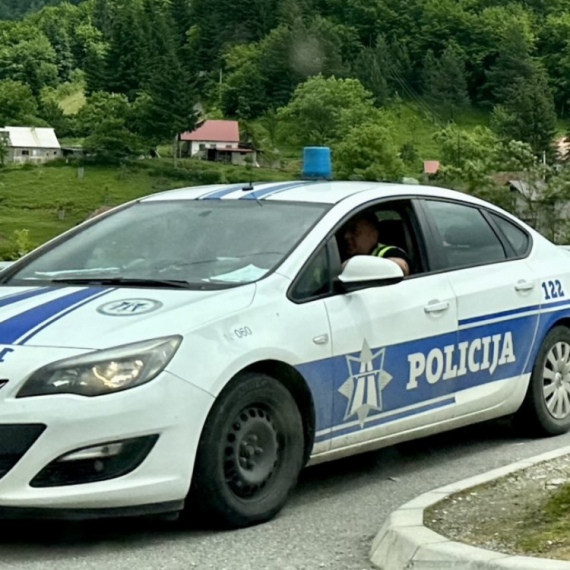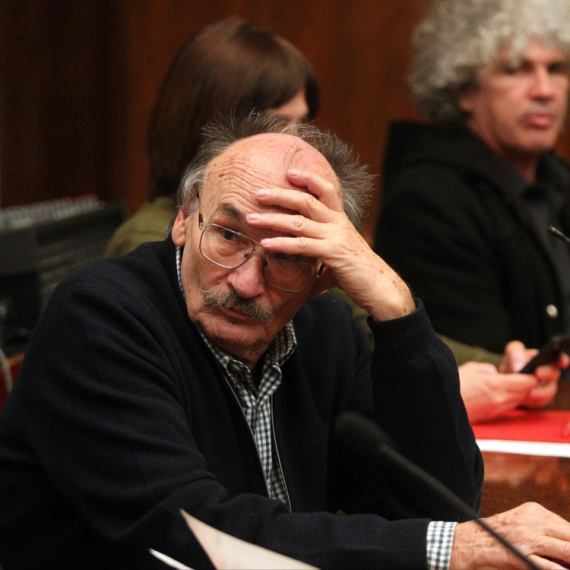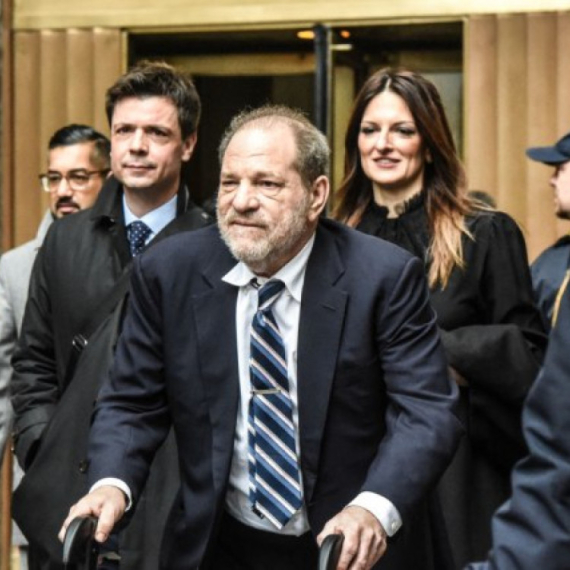Holland: No SAA without Mladić
Holland will not let Serbia sign the Stabilization and Association Agreement (SAA) until Ratko Mladić is transferred to the Hague.
Thursday, 17.01.2008.
09:57

Holland will not let Serbia sign the Stabilization and Association Agreement (SAA) until Ratko Mladic is transferred to the Hague. Dutch European Affairs Minister Frans Timmermans made the remarks in an interview published by Belgium daily Le Soir today. Holland: No SAA without Mladic "We have been saying, and I repeated this clearly, that Serbia has to cooperate fully with the Hague Tribunal. This means that Mladic has to be transferred to the Hague Tribunal prison," said Timmermans. Le Soir reported that Slovenian Foreign Minister Dmitrij Rupel's visit to Holland on Thursday had been unsuccessful because he had failed to persuade his Dutch colleagues to allow Serbia to sign the SAA on January 28. Stressing that Holland "has rather close cooperation with Belgium on this case," Timmermans said that, according to the statements from former Hague Chief Prosecutor Carla Del Ponte, it would be easy for the Serbian government to transfer Mladic, but that the situation with the remaining three fugitives was less clear. Clarifying the reasons for his country’s stance on the matter, Timmermans explained that the Hague was the world's metropolis of international law as several international courts were located there. "We have certain responsibility for the functioning of those institutions. Also, there is a rather uncomfortable situation relating to Srebrenica, which concerns all Dutch people. (…) The fact that those crimes were witnessed by Dutchmen has a direct impact on our stand regarding the war crimes committed in Yugoslavia," the minister concluded. Rehn: Serbia could still sign SAA in January European Enlargement Commissioner Olli Rehn says that Serbia still has a chance of signing the SAA in January. “Full Hague cooperation is a condition of signing the Stabilization and Association Agreement with the EU. I’ve no doubt that Serbian government is fully aware of what it has to do,” Rehn told daily Blic. He added that he wanted the agreement signed as soon as possible, though an exact date had yet to be agreed. The commissioner reiterated that the Kosovo status process and Serbia’s European integration were two separate processes. “I’m disappointed that the SAA is being falsely presented in Serbian political debate,” he said. “The SAA and its entire contents are the product of talks between the EU and Serbia as an equal partner, and without prejudicing Kosovo’s future status,” Rehn stressed. “The agreement is not something the EU imposes on any country, but is rather a recognition of privileged relations with the Union that brings tangible benefits,” he added. Asked whether he viewed Prime Minister Vojislav Kostunica’s remark that “the EU will have to choose between sending its mission to Kosovo and signing the agreement with Serbia“ as an ultimatum, the commissioner replied that he did not, since “ultimatums are not a European way of solving problems.“ Rehn said that the Kosovo question was “essentially a European question“ and that “after the failed UN talks, the EU had to assume responsibility in order to enable the status process to finish.“ “On December 14, the Council of Ministers again confirmed the EU’s resolve to settle Kosovo’s status and to play a leading role in implementing solutions within the framework of the whole region’s European future. The formats for dispatching a European mission (ESDP) will be confirmed by the Council of EU Foreign Ministers, including legal bases,“ explained the commissioner.
Holland: No SAA without Mladić
"We have been saying, and I repeated this clearly, that Serbia has to cooperate fully with the Hague Tribunal. This means that Mladić has to be transferred to the Hague Tribunal prison," said Timmermans.Le Soir reported that Slovenian Foreign Minister Dmitrij Rupel's visit to Holland on Thursday had been unsuccessful because he had failed to persuade his Dutch colleagues to allow Serbia to sign the SAA on January 28.
Stressing that Holland "has rather close cooperation with Belgium on this case," Timmermans said that, according to the statements from former Hague Chief Prosecutor Carla Del Ponte, it would be easy for the Serbian government to transfer Mladić, but that the situation with the remaining three fugitives was less clear.
Clarifying the reasons for his country’s stance on the matter, Timmermans explained that the Hague was the world's metropolis of international law as several international courts were located there.
"We have certain responsibility for the functioning of those institutions. Also, there is a rather uncomfortable situation relating to Srebrenica, which concerns all Dutch people. (…) The fact that those crimes were witnessed by Dutchmen has a direct impact on our stand regarding the war crimes committed in Yugoslavia," the minister concluded.
Rehn: Serbia could still sign SAA in January
European Enlargement Commissioner Olli Rehn says that Serbia still has a chance of signing the SAA in January.“Full Hague cooperation is a condition of signing the Stabilization and Association Agreement with the EU. I’ve no doubt that Serbian government is fully aware of what it has to do,” Rehn told daily Blic.
He added that he wanted the agreement signed as soon as possible, though an exact date had yet to be agreed.
The commissioner reiterated that the Kosovo status process and Serbia’s European integration were two separate processes.
“I’m disappointed that the SAA is being falsely presented in Serbian political debate,” he said.
“The SAA and its entire contents are the product of talks between the EU and Serbia as an equal partner, and without prejudicing Kosovo’s future status,” Rehn stressed.
“The agreement is not something the EU imposes on any country, but is rather a recognition of privileged relations with the Union that brings tangible benefits,” he added.
Asked whether he viewed Prime Minister Vojislav Koštunica’s remark that “the EU will have to choose between sending its mission to Kosovo and signing the agreement with Serbia“ as an ultimatum, the commissioner replied that he did not, since “ultimatums are not a European way of solving problems.“
Rehn said that the Kosovo question was “essentially a European question“ and that “after the failed UN talks, the EU had to assume responsibility in order to enable the status process to finish.“
“On December 14, the Council of Ministers again confirmed the EU’s resolve to settle Kosovo’s status and to play a leading role in implementing solutions within the framework of the whole region’s European future. The formats for dispatching a European mission (ESDP) will be confirmed by the Council of EU Foreign Ministers, including legal bases,“ explained the commissioner.


























































Komentari 29
Pogledaj komentare